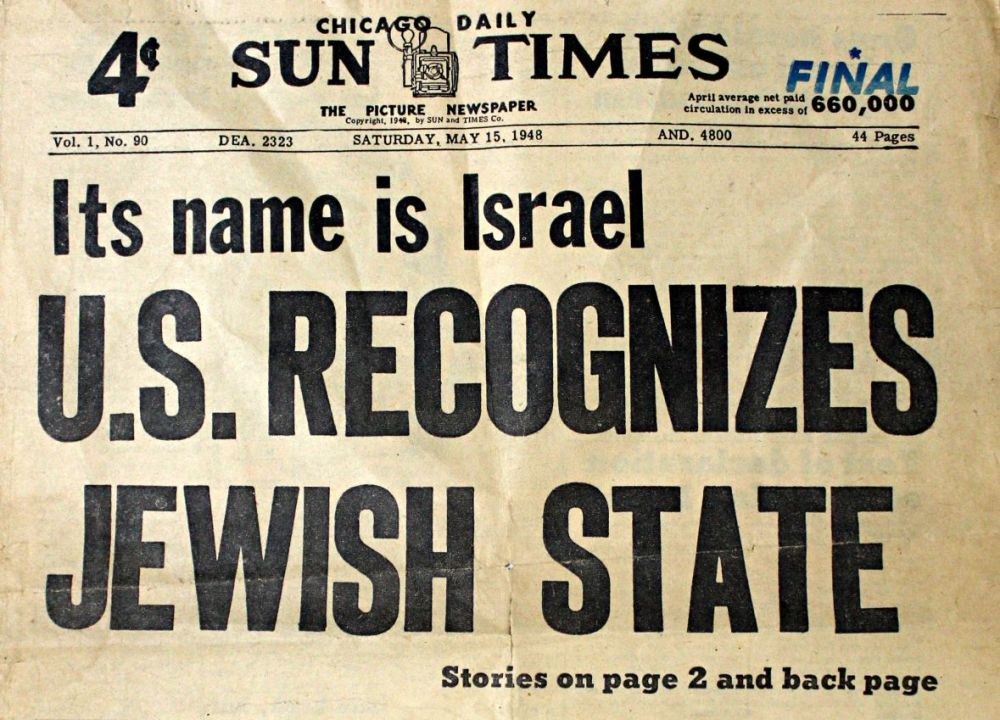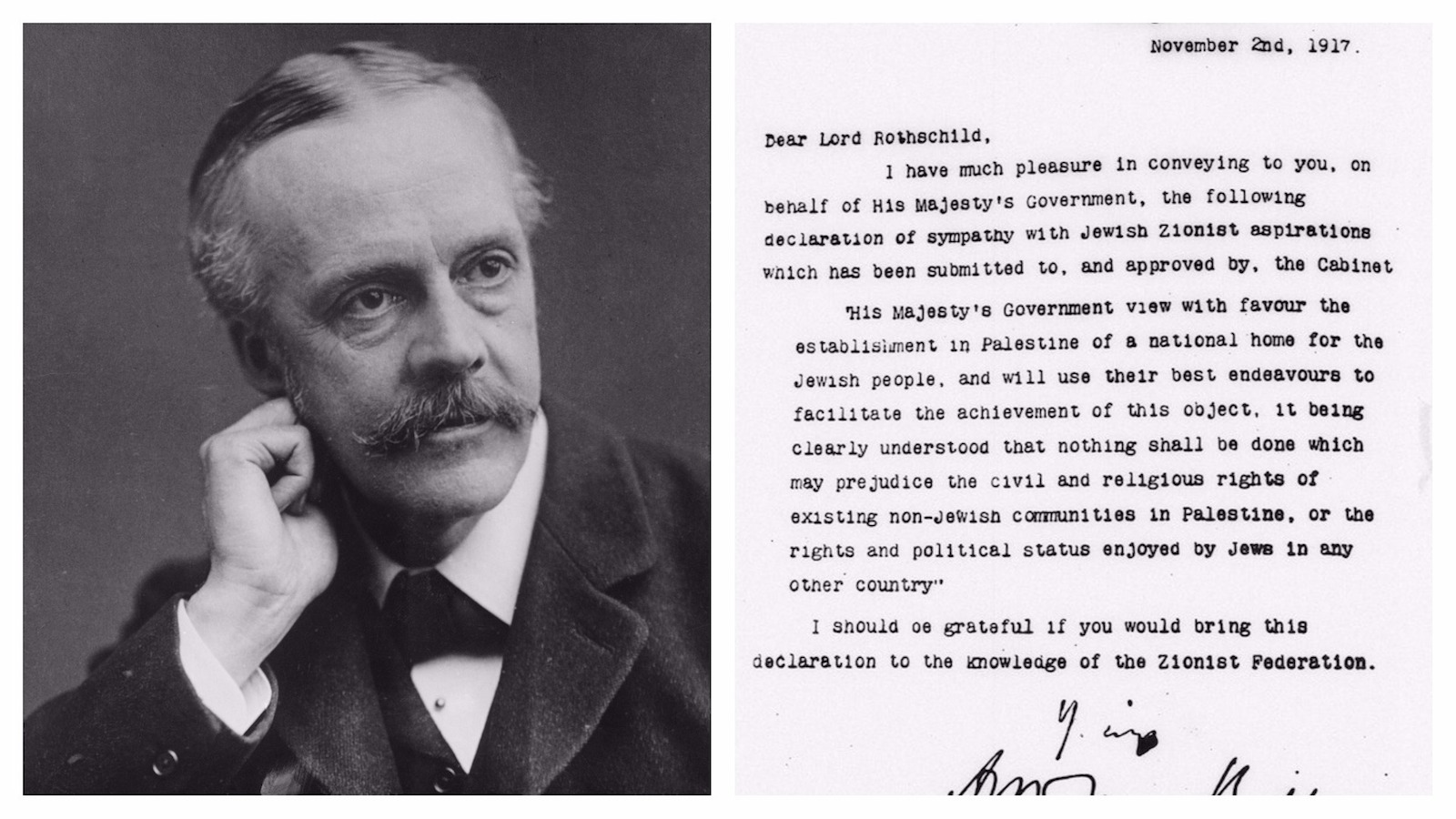How Israel Became a Nation, Addendum to Revelation Class 10-19-2023.




The Arab-Israeli War of 1948
The Arab-Israeli War of 1948 broke out when five Arab nations invaded territory in the former Palestinian mandate immediately following the announcement of the independence of the state of Israel on May 14, 1948. In 1947, and again on May 14, 1948, the United States had offered de facto recognition of the Israeli Provisional Government, but during the war, the United States maintained an arms embargo against all belligerents.

On November 29, 1947, the United Nations General Assembly adopted Resolution 181 (also known as the Partition Resolution) that would divide Great Britain’s former Palestinian mandate into Jewish and Arab states in May 1948. Under the resolution, the area of religious significance surrounding Jerusalem would remain under international control administered by the United Nations. The Palestinian Arabs refused to recognize this arrangement, which they regarded as favorable to the Jews and unfair to the Arab population that would remain in Jewish territory under the partition. The United States sought a middle way by supporting the United Nations resolution, but also encouraging negotiations between Arabs and Jews in the Middle East.
The United Nations resolution sparked conflict between Jewish and Arab groups within Palestine. Fighting began with attacks by irregular bands of Palestinian Arabs attached to local units of the Arab Liberation Army composed of volunteers from Palestine and neighboring Arab countries. These groups launched their attacks against Jewish cities, settlements, and armed forces. The Jewish forces were composed of the Haganah, the underground militia of the Jewish community in Palestine, and two small irregular groups, the Irgun, and LEHI. The goal of the Arabs was initially to block the Partition Resolution and to prevent the establishment of the Jewish state. The Jews, on the other hand, hoped to gain control over the territory allotted to them under the Partition Plan.
After Israel declared its independence on May 14, 1948, the fighting intensified with other Arab forces joining the Palestinian Arabs in attacking territory in the former Palestinian mandate. On the eve of May 14, the Arabs launched an air attack on Tel Aviv, which the Israelis resisted. This action was followed by the invasion of the former Palestinian mandate by Arab armies from Lebanon, Syria, Iraq, and Egypt. Saudi Arabia sent a formation that fought under the Egyptian command. British trained forces from Transjordan eventually intervened in the conflict, but only in areas that had been designated as part of the Arab state under the United Nations Partition Plan and the corpus separatum of Jerusalem. After tense early fighting, Israeli forces, now under joint command, were able to gain the offensive.
Though the United Nations brokered two cease-fires during the conflict, fighting continued into 1949. Israel and the Arab states did not reach any formal armistice agreements until February. Under separate agreements between Israel and the neighboring states of Egypt, Lebanon, Transjordan, and Syria, these bordering nations agreed to formal armistice lines. Israel gained some territory formerly granted to Palestinian Arabs under the United Nations resolution in 1947. Egypt and Jordan retained control over the Gaza Strip and the West Bank respectively. These armistice lines held until 1967. The United States did not become directly involved with the armistice negotiations, but hoped that instability in the Middle East would not interfere with the international balance of power between the Soviet Union and the United States.
https://history.state.gov/milestones/1945-1952/arab-israeli-war
---------------------------------------------------------------------------------------
A Jewish state is established in Palestine.
The land of Israel was the birthplace of the Jewish people. Here their spiritual, religious and national identity was formed. Here they achieved independence and created a culture of national and universal significance. Here they wrote and gave the Bible to the world.
Exiled from Palestine, the Jewish people remained faithful to it in all the countries of their dispersion, never ceasing to pray and hope for their return and the restoration of their national freedom.
Impelled by this historic association, Jews strove throughout the centuries to go back to the land of their fathers and regain their statehood. In recent decades they returned in masses. They reclaimed the wilderness, revived their language, built cities and villages and established a vigorous and ever-growing community with its own economic and cultural life. They sought peace yet were ever prepared to defend themselves. They brought the blessing of progress to all inhabitants of the country.
In the year 1897 the First Zionist Congress, inspired by Theodor Herzl's vision of the Jewish State, proclaimed the right of the Jewish people to national revival in their own country.
This right was acknowledged by the Balfour Declaration of November 2, 1917, and re-affirmed by the Mandate of the League of Nations, which gave explicit international recognition to the historic connection of the Jewish people with Palestine and their right to reconstitute their National Home.
The Nazi holocaust, which engulfed millions of Jews in Europe, proved anew the urgency of the re-establishment of the Jewish state, which would solve the problem of Jewish homelessness by opening the gates to all Jews and lifting the Jewish people to equality in the family of nations.
The survivors of the European catastrophe, as well as Jews from other lands, proclaiming their right to a life of dignity, freedom and labor, and undeterred by hazards, hardships and obstacles, have tried unceasingly to enter Palestine.
In the Second World War the Jewish people in Palestine made a full contribution in the struggle of the freedom-loving nations against the Nazi evil. The sacrifices of their soldiers and the efforts of their workers gained them title to rank with the peoples who founded the United Nations.
On November 29, 1947, the General Assembly of the United Nations adopted a Resolution for the establishment of an independent Jewish State in Palestine, and called upon the inhabitants of the country to take such steps as may be necessary on their part to put the plan into effect.
This recognition by the United Nations of the right of the Jewish people to establish their Independent State may not be revoked. It is, moreover, the self-evident right of the Jewish people to be a nation, as all other nations, in its own Sovereign State.
ACCORDINGLY, WE, the members of the National Council, representing the Jewish people in Palestine and the Zionist movement of the world, met together in solemn assembly today, the day of the termination of the British mandate for Palestine, by virtue of the natural and historic right of the Jewish and of the Resolution of the General Assembly of the United Nations,
HEREBY PROCLAIM the establishment of the Jewish State in Palestine, to be called ISRAEL.
WE HEREBY DECLARE that as from the termination of the Mandate at midnight, this night of the 14th and 15th May, 1948, and until the setting up of the duly elected bodies of the State in accordance with a Constitution, to be drawn up by a Constituent Assembly not later than the first day of October, 1948, the present National Council shall act as the provisional administration, shall constitute the Provisional Government of the State of Israel.
THE STATE OF ISRAEL will be open to the immigration of Jews from all countries of their dispersion; will promote the development of the country for the benefit of all its inhabitants; will be based on the precepts of liberty, justice and peace taught by the Hebrew Prophets; will uphold the full social and political equality of all its citizens, without distinction of race, creed or sex; will guarantee full freedom of conscience, worship, education and culture; will safeguard the sanctity and inviolability of the shrines and Holy Places of all religions; and will dedicate itself to the principles of the Charter of the United Nations.
THE STATE OF ISRAEL will be ready to cooperate with the organs and representatives of the United Nations in the implementation of the Resolution of the Assembly of November 29, 1947, and will take steps to bring about the Economic Union over the whole of Palestine.
We appeal to the United Nations to assist the Jewish people in the building of its State and to admit Israel into the family of nations.
In the midst of wanton aggression, we yet call upon the Arab inhabitants of the State of Israel to return to the ways of peace and play their part in the development of the State, with full and equal citizenship and due representation in its bodies and institutions -- provisional or permanent.
We offer peace and unity to all the neighboring states and their peoples, and invite them to cooperate with the independent Jewish nation for the common good of all.
Our call goes out the Jewish people all over the world to rally to our side in the task of immigration and development and to stand by us in the great struggle for the fulfillment of the dream of generations -- the redemption of Israel.
With trust in Almighty God, we set our hand to this Declaration, at this Session of the Provisional State Council, in the city of Tel Aviv, on this Sabbath eve, the fifth of Iyar, 5708, the fourteenth day of May, 1948.
https://www.pbs.org/wgbh/americanexperience/features/truman-israel/
-----------------------------------------------------------------------------------------------------

The Balfour Declaration was a public statement issued by the British government in 1917 during the First World War announcing its support for the establishment of a "national home for the Jewish people" in Palestine, then an Ottoman region with a small minority Jewish population. The declaration was contained in a letter dated 2 November 1917 from the United Kingdom's Foreign Secretary Arthur Balfour to Lord Rothschild, a leader of the British Jewish community, for transmission to the Zionist Federation of Great Britain and Ireland. The text of the declaration was published in the press on 9 November 1917.
Immediately following their declaration of war on the Ottoman Empire in November 1914, the British War Cabinet began to consider the future of Palestine; within two months a memorandum was circulated to the Cabinet by a Zionist Cabinet member, Herbert Samuel, proposing the support of Zionist ambitions in order to enlist the support of Jews in the wider war. A committee was established in April 1915 by British Prime Minister H. H. Asquith to determine their policy towards the Ottoman Empire including Palestine. Asquith, who had favoured post-war reform of the Ottoman Empire, resigned in December 1916; his replacement David Lloyd George favoured partition of the Empire. The first negotiations between the British and the Zionists took place at a conference on 7 February 1917 that included Sir Mark Sykes and the Zionist leadership. Subsequent discussions led to Balfour's request, on 19 June, that Rothschild and Chaim Weizmann submit a draft of a public declaration. Further drafts were discussed by the British Cabinet during September and October, with input from Zionist and anti-Zionist Jews but with no representation from the local population in Palestine.
By late 1917, in the lead-up to the Balfour Declaration, the wider war had reached a stalemate, with two of Britain's allies not fully engaged: the United States had yet to suffer a casualty, and the Russians were in the midst of a revolution with Bolsheviks taking over the government. A stalemate in southern Palestine was broken by the Battle of Beersheba on 31 October 1917. The release of the final declaration was authorised on 31 October; the preceding Cabinet discussion had referenced perceived propaganda benefits amongst the worldwide Jewish community for the Allied war effort.
The opening words of the declaration represented the first public expression of support for Zionism by a major political power. The term "national home" had no precedent in international law, and was intentionally vague as to whether a Jewish state was contemplated. The intended boundaries of Palestine were not specified, and the British government later confirmed that the words "in Palestine" meant that the Jewish national home was not intended to cover all of Palestine. The second half of the declaration was added to satisfy opponents of the policy, who had claimed that it would otherwise prejudice the position of the local population of Palestine and encourage antisemitism worldwide by "stamping the Jews as strangers in their native lands". The declaration called for safeguarding the civil and religious rights for the Palestinian Arabs, who composed the vast majority of the local population, and also the rights and political status of the Jewish communities in other countries outside of Palestine. The British government acknowledged in 1939 that the local population's wishes and interests should have been taken into account, and recognised in 2017 that the declaration should have called for the protection of the Palestinian Arabs' political rights.
The declaration had many long-lasting consequences. It greatly increased popular support for Zionism within Jewish communities worldwide, and became a core component of the British Mandate for Palestine, the founding document of Mandatory Palestine. It indirectly led to the emergence of Israel and is considered a principal cause of the ongoing Israeli–Palestinian conflict, often described as the world's most intractable conflict. Controversy remains over a number of areas, such as whether the declaration contradicted earlier promises the British made to the Sharif of Mecca in the McMahon–Hussein correspondence.

https://en.wikipedia.org/wiki/Balfour_Declaration
---------------------------------------------------------------------------
Comments
Post a Comment